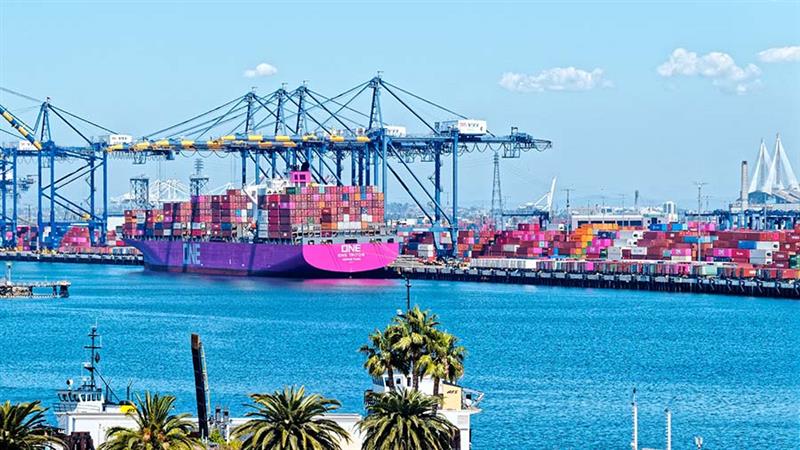Supreme Court Issued Interpretation IV on Company Law, ICOs Banned – China Regulatory Brief
Interpretation IV on Company Law enhances shareholder protection
China’s Supreme Court issued the fourth judicial interpretation of the PRC Company Law (“the Interpretation”) at a press conference on August 28 to further standardize company governance, and enhance protection to the minority shareholders and creditors, with effect from September 1, 2017.
The Interpretation offers great practical and instructive guidance to the law application issues in disputes over the validity of company resolutions, shareholders’ right to know, profit distribution, preemptive right, and shareholder representative action.
In particular, the Interpretation introduces suits for affirming “the non-existence of a resolution”, and expands the valid plaintiff scope to directors and supervisors. Further, it stipulates that shareholders’ right to know cannot be deprived by articles of association of the company, or agreements between the shareholders.
Shareholders now have the right to file a lawsuit requesting profit distribution. Moreover, the Interpretation offers remedies for infringement of the pre-emptive rights, and provides more details to the implementation of shareholder representative actions.
The Interpretation makes several breakthroughs to the existing laws and regulations. However, the bridges between the breakthroughs and the current system are yet to be resolved in practice.
![]() RELATED: China Bans Weird, Long, and Sensitive Company Names
RELATED: China Bans Weird, Long, and Sensitive Company Names
Four draft standards for Cybersecurity Law released
The National Information Security Standardization Technical Committee recently released four draft national standards (“Draft Standards”) in relation to the Cybersecurity Law of China, including the second draft Guidelines for Cross-Border Transfer Security Assessment, the General Security Requirements for Network Products and Services, and two other guidelines on critical information.
Among other issues, the Draft Standards add new definitions of certain terms, such as “domestic operations”, “cross-border data transfer”, and “assessment by competent authorities”. The Draft Standards provide general and enhanced security requirements applicable to network products and services sold or provided within China. Moreover, the Draft Standards proposes security evaluation procedures and approaches on critical information.
Accordingly, a network operator that is not registered in China would still be deemed to be conducting “domestic operations” if it conducts business or provides products or services within China. There could still be a cross-border transfer even if the data collected is not retained outside of China, if overseas entities, institutions or individuals are able to access the data remotely.
The Draft Standards are open for comments from the general public until October 13, 2017.
![]() RELATED: Business Advisory Services from Dezan Shira & Associates
RELATED: Business Advisory Services from Dezan Shira & Associates
Chinese Authorities Officially Ban ICOs
Seven state authorities led by the People’s Bank of China issued a joint announcement on September 4, 2017 to curb risks stemming from the initial coin offerings (ICOs) – an increasingly popular way to raise cash or other virtual currencies, such as Bitcoin and Ethereum.
According to the announcement, the initial offerings of virtual currencies will be deemed as illegal fundraising, all ICOs fundraising activities must stop immediately, and individuals and organizations that have completed ICOs should arrange to return funds.
Over 100,000 investors in China are reported to have snapped up RMB 2.6 billion (US$385 million) in new virtual currencies through ICOs during the first six months this year. This imposes great risks in default and fraud, or even money laundering and terrorist financing, due to the anonymous nature of the transactions.
Other governments – such as the US, Canada, and Singapore – have also taken measures to regulate ICO risks.
|
China Briefing is published by Asia Briefing, a subsidiary of Dezan Shira & Associates. We produce material for foreign investors throughout Asia, including ASEAN, India, Indonesia, Russia, the Silk Road, and Vietnam. For editorial matters please contact us here, and for a complimentary subscription to our products, please click here. Dezan Shira & Associates is a full service practice in China, providing business intelligence, due diligence, legal, tax, IT, HR, payroll, and advisory services throughout the China and Asian region. For assistance with China business issues or investments into China, please contact us at china@dezshira.com or visit us at www.dezshira.com
|

Dezan Shira & Associates Brochure
Dezan Shira & Associates is a pan-Asia, multi-disciplinary professional services firm, providing legal, tax and operational advisory to international corporate investors. Operational throughout China, ASEAN and India, our mission is to guide foreign companies through Asia’s complex regulatory environment and assist them with all aspects of establishing, maintaining and growing their business operations in the region. This brochure provides an overview of the services and expertise Dezan Shira & Associates can provide.
An Introduction to Doing Business in China 2017
This Dezan Shira & Associates 2017 China guide provides a comprehensive background and details of all aspects of setting up and operating an American business in China, including due diligence and compliance issues, IP protection, corporate establishment options, calculating tax liabilities, as well as discussing on-going operational issues such as managing bookkeeping, accounts, banking, HR, Payroll, annual license renewals, audit, FCPA compliance and consolidation with US standards and Head Office reporting.
In this issue of China Briefing magazine, we provide foreign investors with best practices for implementing internal controls in China. We explain what makes China’s internal control environment distinct, and why China-based operations need to prioritize internal control. We then outline how to execute an internal control review to gauge organizational resiliency and identify gaps in control points, and introduce practical internal controls for day-to-day operations. Finally, we explore why ERP systems are becoming increasingly integral to companies’ internal control regimes.
- Previous Article Anti-Pyramid Scheme Campaign, Long and Unusual Company Names Banned – China Regulatory Brief
- Next Article IP Protection Campaign Launched, Medical Device Classification Catalogue Revised – China Regulatory Brief































